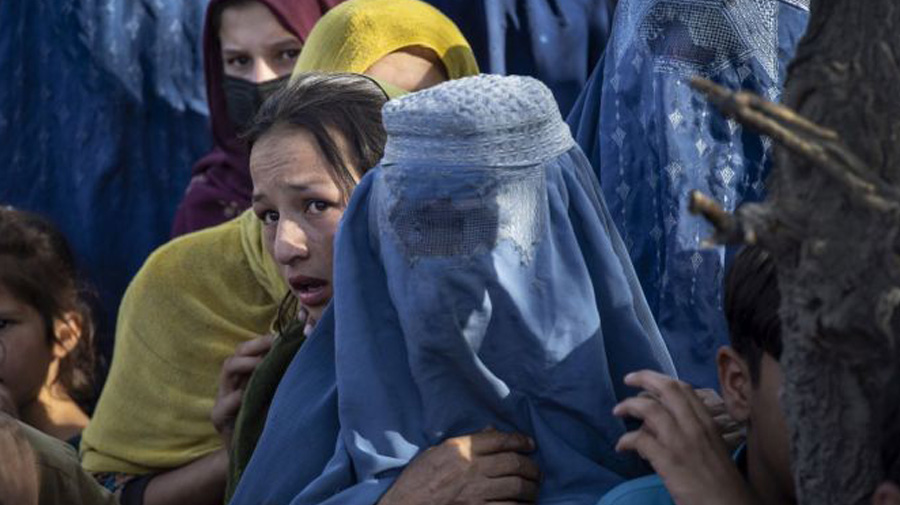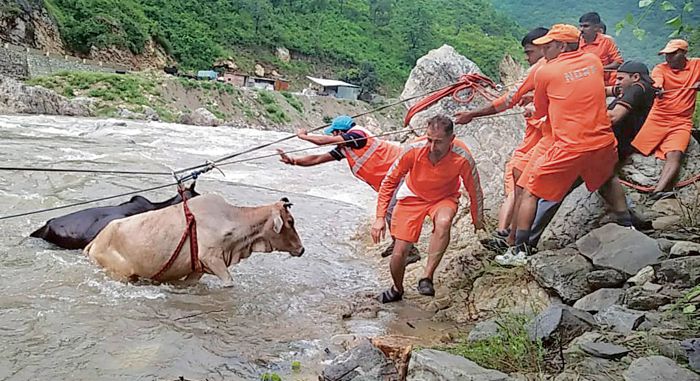COP28 Floundered on Fossil Fuels, Coal and Finance

Vaishali Basu Sharma
Consultant ,PPFAside from stark geopolitical tensions which have become characteristic of international summits lately, this year’s global climate conference COP28 witnessed sharper differences between the ‘Like Minded Developing Countries’ of the Global South and the developed countries of the Global North. After the final day (December 12) of the two-week COP28 climate summit in Dubai saw a stalemate over the draft agreement, representatives continued negotiations to finally arrive at what is clearly now a compromised consensus, with terms like ‘unambitious,’ ‘incremental,’ ‘menu’ and of ‘half measures’ being used to describe the final agreement.
The draft presented by COP28 President, UAE’s Sultan al-Jaber proposed eight options that countries could use to cut emissions, including: “reducing both consumption and production of fossil fuels, in a just, orderly and equitable manner so as to achieve net zero by, before, or around 2050”, falling short of referring to a “phase out” of fossil fuels. It included tripling renewable energy capacity by 2030, “rapidly phasing down unabated coal” and scaling up technologies including those to capture CO2 emissions to keep them from the atmosphere. The US, UK and EU led more than a hundred countries to oppose the draft agreement which mentions the need to reduce emissions but did not outrightly state that fossil fuels should be phased out. Representatives for smaller Island Nations called it a “death sentence”.
The final deal now calls for “transitioning away from fossil fuels in energy systems, in a just, orderly and equitable manner … so as to achieve net zero by 2050 in keeping with the science,” dropping the term “phasing away” and including “fossil fuel.” The agreement further calls for phasing out inefficient fossil fuel subsidies and for “accelerating phase down” of coal usage.
While developing nations along with major oil producers are opposed to any demand for phasing out fossil fuels, the point that India had been making throughout the discussions is that the focus needs to move away from coal because the science very clearly states that it is a carbon emission problem and all the fossil fuels need to be targeted. Although the discussions failed to feature accountability for historic polluters, in his speech Prime Minister Narendra Modi “rebuked” large emitters like the US for releasing the most climate-warming emissions since the Industrial Revolution at COP28, “Over the past century, a small section of humanity has indiscriminately exploited nature. However, entire humanity is paying the price for this, especially people living in the Global South.”
The exclusive focus on ‘rapidly phasing down coal’ drew exception from India, and it was joined by China in abstaining from signing the Global Renewables and Energy Efficiency Pledge aimed at tripling installed renewable energy capacity by 2030. Despite finding mention at the G20 declaration in September, India’s decision to not sign the COP28 global pledge was likely related to the framing of the text specifically around the severe stance on phasing out coal. India has been at the forefront of phasing in renewables, and upholds that tripling of renewable energy and doubling of energy efficiency must not be covered with the phasing out of coal. As part of its nationally determined contributions (NDCs), it has already committed to installing 500 GW of electricity from non-fossil fuel sources by 2030. Between 2017-23, India added 100 GW of installed electric capacity, of which 80% was from renewable sources.
But coal’s days are not over in India. Despite setting out some of the most aggressive renewable energy targets in the world, coal remains at the heart of India’s urban industrial development projects, and a major source of jobs. It is important for the Global North to appreciate what transition from coal means for poor countries like India. Just consider the coal supply chains, taking India as a typical country of the global South. From the pitheads, coal is brought by trucks to a nearby cold depot from where it is transported again by trucks to the nearest railway station. Truck driving is the profession of choice for many poor migrants from rural areas and there are some two million registered on Indian roads. By a conservative estimate, at least a quarter of this carries coal. Each truck has a driver and two helpers who have families, which means that 1.5 million are reliant on just coal trucking.
Supply chain disruptions due to developments in Ukraine have slowed down the momentum in transitioning to renewable energy options, everywhere. Upgrades for electricity storage require large tracts of land and transmission systems are built for coal and fossil fuels, which means they will need significant technology advancement for renewables. Nuclear and hydropower are considered essential to energy transitions, but globally there is some disagreement over whether large dams are within the purview of renewable energy sources.
Commitments made around climate finance at COP28 remain weak, and although a $700 million loss and damage fund has been approved, it falls way below the estimated $400 billion needed to effectively begin addressing climate change. Technology transfers have been spoken of at COP28; but how much of this will actually transpire remains to be seen. The developed world retains its significant representation in deciding where funds go. Without financial backing, developing nations cannot think of ambitious action on mitigations. Sustainable finance instruments and technology transfer remain critical to building expensive projects that can effectively address climate change. The nature of finance flows needs to be demystified.
India must insist that the fossil fuel phase-out must be differentiated depending on national circumstances and on a time scale, and technology transfer, co-development and access form the core of the energy transition. The COP28 Dubai agreement may have created optics of convergence between the developed and developing countries, but there will be massive dissonance over how differentiated responsibility will be worked out in determining the absolute reduction of emissions over the next decade and more.






.jpg)


